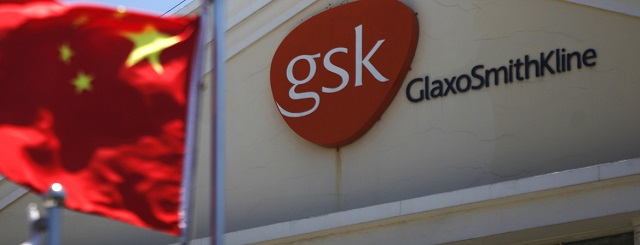It should be no surprise to anyone that British drug giant GlaxoSmithKline is on the hot seat for bribing Chinese doctors with cash and sexual favors.
Accused earlier this year of providing doctors with bogus speaking fees, cash payments, lavish dinners and all-expenses-paid trips in return for prescribing the firm’s products, I don’t know a soul on the planet who thought the company didn’t do it.
Industry insiders say it is common practice for Chinese pharmaceutical firms to offer doctors and hospitals bribes to have their products used.
What is remarkable, though, is that GSK took this long to admit anything. The company denied any wrongdoing as recently as last week, saying that after a four-month internal investigation they found “no evidence of bribery or corruption” by its staff in dealings with Chinese doctors and officials.
What?
It’s not like GSK hasn’t been through this sort of thing before. Last year, the company was busted in the U.S. for essentially the same thing. In that circumstance, GSK, which reported nearly US$40 billion in revenue, agreed to a US$3 billion settlement in the largest health care fraud case in U.S. history.
In China, GSK is alleged to have used a network of more than 700 travel agencies to funnel sex and nearly US$500 million since 2007 to government officials, medical associations, hospital bosses and doctors.
In the U.S. case, GSK had attempted to influence doctors by paying for every imaginable form of high-priced entertainment, from Hawaiian vacations to paying doctors millions of dollars to go on speaking tours to European pheasant hunts to tickets to Madonna concerts, according to news reports.
Commenting on the settlement agreement a year ago, GlaxoSmithKline CEO Sir Andrew Witty said: “Today brings to resolution difficult, long-standing matters for GSK. Whilst these originate in a different era for the company, they cannot and will not be ignored. On behalf of GSK, I want to express our regret and reiterate that we have learnt from the mistakes that were made.”
Right.
After China detained four senior GSK executives, all Chinese, at least one confirmed—on state-owned television no less—that he used a travel agency to channel funds meant for “dealing with government departments.”
In a statement thereafter, GSK said in part: “”We are deeply concerned and disappointed by these serious allegations of fraudulent behaviour and ethical misconduct by certain individuals at the company. GSK shares the desire of the Chinese authorities to root out corruption. These allegations are shameful and we regret this has occurred.”
A GlaxoSmithKline spokesperson said the company’s head of China—Mark Reilly, a British national—remained in his post, but declined comment on his whereabouts. Some reports say he left China in June and has not returned. (No, that’s not suspicious at all.)
GSK supplies key products such as vaccines in China, as well as drugs for lung disease and cancer. The company also sells the popular Botox wrinkle treatment in the Middle Kingdom to wealthy people who want to make their faces look unnaturally smooth, strangely taught and abnormally frozen.
The drug-giant has a growing business in China with its headquarters in Shanghai, recording about US$1.2 billion in sales last year. It currently employs more than 6,000 people at eight sites across the country and has investments totaling US$500 million, according to its website.
Gao Feng, the head of China’s Ministry of Public Security fraud unit, said: “We found that bribery is a core part of the activities of the company. To boost their share prices and sales, the company performed illegal actions.”
According to Chinese newspapers, travel agencies working for GSK would invent meetings that required travel, but use the money to bribe doctors to prescribe GSK drugs. “Each doctor had a credit card from the company. The kickbacks were transferred to the cards the day after the drugs were prescribed,” one newspaper alleged.
My advice to multinationals? Unless you like defending your brand in a market where you already have an advantage over the locals in terms of public trust, never ever pay a bribe.






Be the first to comment on "GSK in China: latest multinational in Beijing’s corruption cross hairs"